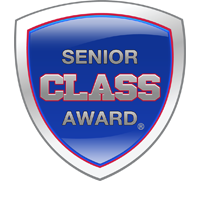
Balancing the 4 C’s
When the Lowe’s Senior CLASS Award was created in the 2001-02 season, it was more suited for collegiate men’s basketball than women’s basketball.
Male players were leaving schools at a growing rate to pursue their NBA dream and the envisioned windfall of dollars that come with signing pro contracts.
The women, on the other hand, had no reason to depart before receiving their diplomas. In fact, it was the diplomas themselves that were their real pro contracts despite the rise of the WNBA in the mid-1990s.
As much as basketball has been a major part of their lives, when it comes time to selecting the college of their choice, the academic reputation usually means as much as how many conference championships, NCAA titles or appearances or national rankings have been obtained.
To illustrate, several years ago there was one famous moment when the media was interviewing a key player prior to a major showdown between her school and her opponent. Both coaches, each with high visibility, had recruited her heavily. When she was asked what the tipping point was that sent her to the school where she was enrolled, she responded to the writers and broadcasters covering the other school that she thought the diploma from her school would be of greater value later in life.
That said, the inclusion of women for the Lowe’s Senior CLASS Award is still a worthwhile pursuit because of the large quantity of fourth-year students who could be found virtually living up to the acronym – Classroom, Community, Character and Competition.
Year after year, coaches always talk about the value of seniors. From a competitive standpoint, they are the leaders because of their years of experience in a collegiate program. But they are also the trip lever for bonding as a team.
They tend to keep the rest of the squad from going astray off the court as well as in competition through a season. They excel themselves because the senior year is the last go-round.
Conversely, near the end when conference tournament time approaches, one will often say how much the underclass members want to do well to send the seniors out on a good note as a way of thanking them for their leadership.
One will usually find seniors pushing harder at the finish because while things may have gotten mundane along the way, when that potential last game appears on the horizon, there is a sudden urge to give maximum effort to keep everybody together for one more game.
As much as the previous paragraphs speak to the competition aspect, they also speak to the character involvement. It’s the seniors who are ready to help teammates beyond formal practice time to hone their skills. The buddy system is also in play for school work as well as working out modern life on a collegiate campus.
Community has been a mainstay of women’s programs. Almost every media guide has pictures of different activities teams become involved with in their local neighborhoods – fixing up houses, tending to disadvantaged youngsters, or perhaps befriending senior citizens. Obviously, the Think Pink campaigns to benefit the WBCA/Kay Yow cancer fund have been a major pursuit.
Usually, individuals beyond their team obligations may become involved in some of these activities on their own. For example, in 1996 after the United States women’s basketball team captured an Olympic gold medal at the Atlanta Games, Philadelphia’s Dawn Staley began a foundation in her native city to help urban youngsters at risk.
When one considers Lowe’s candidates every year, after reviewing all the previous items just mentioned, their work in the classroom is automatically equated to almost all their other involvements.
Sometimes it seems as a surprise when it is learned that some of the finalists of high academic achievement come from programs that are quite basketball-intensive as well as from places known more for classroom performance.
In conclusion, to steals some parlance from other Olympic sports using different scoring systems, when this year’s Lowe Senior CLASS Award women’s winner is announced she will undoubtedly registered a “10” in all four disciplines.



